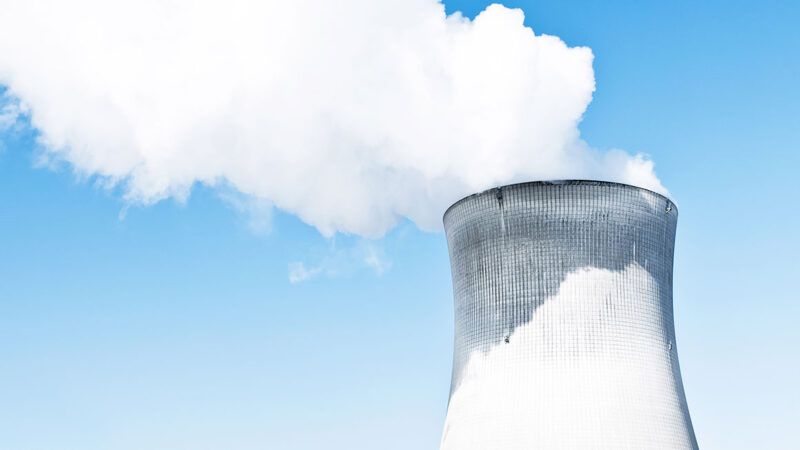Nuclear Energy Prevents Air Pollution and Saves Lives
Economists estimate that each nuclear plant built could save more than 800,000 life years.

The panic following the catastrophic meltdown of the nuclear power plant in Chernobyl in the Soviet Union in April 1986 resulted in nearly 400 fewer new nuclear power plants being built than had been projected. Fewer clean nuclear power plants led to increased air pollution from fossil fuel–fired plants. That extra air pollution killed far more people than the meltdown, by several orders of magnitude. This is the preliminary conclusion of a recent National Bureau of Economic Research (NBER) study by three applied economists.
The researchers found that new nuclear plant construction flatlined immediately after Chernobyl. Had previous trends continued, the study indicates that the United States would have built more than 170 new reactors by now. In the late 1960s, the Atomic Energy Commission anticipated that 1,000 mostly fast breeder reactors would supply 70 percent of America's electricity by 2000. Sadly, only 20 percent of U.S. electricity is currently generated by nuclear plants, chiefly old-fashioned light-water reactors that were built decades ago.
While estimates vary, studies agree that air pollution has caused great harm to human health. Max Roser at Our World in Data reviewed information from the World Health Organization (WHO) and the Institute for Health Metrics and Evaluation (IHME) on global air pollution mortality estimates. WHO and IHME report that between 4.2 million and 4.5 million people die prematurely from exposure to outdoor air pollution annually. A 2019 study in the Proceedings of the National Academy of Sciences (PNAS) calculated that 3.6 million people prematurely die as a result of air pollution from burning fossil fuels. The PNAS study estimated that the 194,000 annual premature deaths in the U.S. resulting from fossil fuel air pollution amounted to the annual loss of 5.7 million life years.
Contrast these estimates with the number of deaths associated with generating nuclear power. The 1979 Three Mile Island partial meltdown caused no injuries or deaths, and Fukushima's 2011 tsunami-caused disaster may have led to just one radiation-related death years later.
Chernobyl's reactor blast killed two workers, and 47 emergency workers who doused the core fires later died of radiation exposure. The good news is that a 2018 report by the United Nations' Scientific Committee on the Effects of Atomic Radiation noted that most people downwind "were exposed to radiation levels comparable to or a few times higher than annual levels of natural background." Consequently, the report concluded that the "vast majority of the population need not live in fear of serious health consequences due to the radiation from the Chornobyl accident."
Using air pollution data derived from satellite observations, the NBER economists generally find that bringing a reactor online significantly reduces ambient fine particulate air pollution around the nearest cities. Using estimates provided by the University of Chicago's Air Quality Life Index, they calculate how much life expectancies would have increased owing to reduced air pollution had the extrapolated trend in constructing new nuclear power plants not stalled.
The economists reckon that the construction of each additional nuclear power plant, by reducing air pollution, could save more than 800,000 life years. "According to our baseline estimates, over the past 38 years, Chernobyl reduced the total number of [nuclear power plants] worldwide by 389, which is almost entirely driven by the slowdown of new construction in democracies," they report. "Our calculations thus suggest that, globally, more than 318 million expected life years have been lost in democratic countries due to the decline in [nuclear power plant] growth in these countries after Chernobyl." They estimate the U.S. lost 141 million life years due to the slowdown in nuclear power deployment.
Cautioning that their estimates are only intended to illustrate a hypothetical timeline in which nuclear power plants continued to grow at the same rate as before the Chernobyl disaster, the researchers nonetheless conclude that "air pollution would have likely been much lower, which in turn, would have had significant health benefits."
This article originally appeared in print under the headline "Nuclear Power Saves Lives."


Show Comments (30)